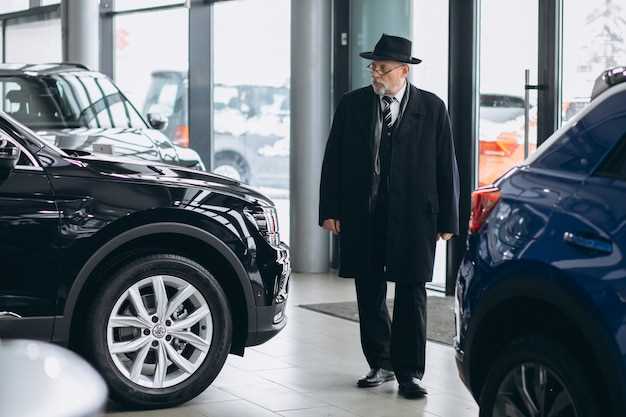In an ever-changing world where safety is paramount, individuals often find themselves weighing various alternatives to ensure their well-being. The dilemma of leasing or owning a fortified transportation solution can be perplexing. Each path presents unique benefits and challenges. Whether you prioritize cost, frequency of use, or long-term needs, the decision is essential. An informed choice can significantly influence your peace of mind.
Leasing offers flexibility and may suit those who prefer not to commit long-term. With this approach, one can frequently change vehicles, adapting to changing circumstances. On the other hand, ownership provides a sense of stability and long-term assurance. For some, this route may offer the ultimate peace of mind in knowing their vehicle is always available when necessary. Understanding these dynamics can be crucial to making the right choice for your circumstances.
As you navigate this important decision, consider the specifics of your daily life. Assessing all factors can lead you to a decision that aligns with your lifestyle and requirements. Each option holds distinct advantages, and their impact can shape your everyday experiences. Finding the right match can be a transformative aspect of enhancing your sense of security.
Ultimately, the journey toward ensuring personal safety through vehicles encompasses more than just selection; it involves understanding your preferences and the nature of your environment. By analyzing the pros and cons closely, you can pave the way to a thoughtful decision that resonates with both your expectations and circumstances.
Evaluating Armored Vehicle Options

When considering fortified transportation, it’s important to weigh multiple factors. Security requirements vary significantly between different individuals and organizations. Each choice presents unique advantages and potential drawbacks. Understanding your specific situation is essential to making an informed decision.
Cost, availability, and maintenance are critical aspects to analyze. For instance, the upfront investment can be substantial. Alternatively, ongoing expenses should also be factored into the equation. Both approaches have their merits, depending on your priorities.
Additionally, assessing the level of protection needed is crucial. Are you facing specific threats or just general concerns? Short-term needs may lead you to one solution while long-term commitments make the other more appealing. Always gauge how the vehicle fits into your broader safety strategy.
| Criteria | Rental | Purchase |
|---|---|---|
| Initial Cost | Lower upfront cost | Higher investment required |
| Long-term Expense | Recurring fees | Maintenance and insurance costs |
| Customization | Limited options | Fully customizable |
| Availability | Quick access | Requires time to acquire |
| Usage Flexibility | Short-term solutions | Designed for long-term use |
In summary, both alternatives have valid reasons for consideration. By analyzing the details outlined, you can navigate your options more effectively. Engaging with experts in this field may also provide additional insights. Ultimately, aligning your choice with your circumstances is of utmost importance.
Advantages of Renting an Armored Car

Choosing to utilize a fortified vehicle can bring numerous benefits. This decision connects to varied needs and circumstances. Flexibility is often a key aspect when considering such options. You can have immediate access without long-term commitments. This is ideal for short-term requirements or special events.
Furthermore, there is no need for maintenance concerns. The service providers usually take care of all upkeep and issues. When renting, you are relieved from the burden of repairs and servicing. That means you can focus more on your schedule rather than worrying about vehicle conditions. This can lead to significant peace of mind, especially under stressful conditions.
Another significant advantage relates to cost-effectiveness. Owning a fortified vehicle often involves substantial financial investments. Renting allows clients to allocate resources more efficiently. Expenses tied to purchase, such as depreciation, insurance, and long-term storage, are often avoided. This can be particularly beneficial for individuals or organizations with fluctuating security needs.
| Benefit | Description |
|---|---|
| Flexibility | Access to different vehicles as needed without long-term commitment. |
| No Maintenance | Provider handles repairs and upkeep, offering more convenience. |
| Cost-Effectiveness | Avoid large expenses related to ownership and associated costs. |
| Up-to-Date Technology | Access the latest models equipped with advanced security features. |
| Privacy and Discretion | Service providers often ensure confidentiality tailored to customer’s needs. |
Finally, renting allows individuals or businesses to leverage cutting-edge technology without the hefty price tag. Providers frequently update their fleets with the latest innovations, ensuring clients benefit from heightened protection and safety. This access to modern features can make a remarkable difference, especially in high-stakes situations.
Flexibility and Cost-Effectiveness
In today’s fast-paced world, adaptability and budget considerations play crucial roles in decision-making. Understanding the nuances of various solutions can lead to better choices. The ability to adjust one’s strategy based on changing circumstances is invaluable. Financial resources can either limit or expand possibilities, depending on the chosen path.
When evaluating different approaches, think about how they cater to your unique situation. Here are some key points to consider:
- Short-term financial commitments offer easier cash flow management.
- Long-term investments may demand significant upfront capital.
- Availability of options can facilitate rapid response to immediate needs.
- Changing requirements might make previous choices less ideal over time.
Moreover, by opting for flexible arrangements, you can avoid the depreciation costs associated with owning a vehicle over an extended period, which often compounds as maintenance and insurance expenses add up significantly, leading to a considerable financial burden that one must bear if commitment is made to a long-term asset.
Ultimately, examining the balance between your strategic flexibility and overall expenditure will guide your decision. Weighing these factors can illuminate the path forward. It’s essential to think deeply about what approach aligns with your goals and available resources.
Maintenance Responsibilities
When it comes to ensuring the functionality and readiness of secure transportation, maintenance plays a critical role. The obligations linked to upkeep can significantly differ between various scenarios. Proper attention to details is essential. Regular checks, inspections, and timely repairs are vital for safety and performance.
For those who own such vehicles, the responsibility falls entirely on them. This includes managing schedules for maintenance, addressing any issues promptly, and keeping records. On the other hand, when utilizing a service, the provider typically handles the maintenance. Clients must verify what services are included in their agreement.
In cases of ownership, maintaining high standards often involves a greater commitment, particularly since owners must also ensure compliance with safety regulations and standards, which can frequently change over time based on legal requirements and technological advancements.
Understanding who bears the responsibility for upkeep can greatly influence decision-making. Those who may not have the time or expertise might find it easier to rely on a service that handles all associated tasks. Therefore, weighing these responsibilities is crucial in making a well-informed choice.
Investing in Your Own Armored Vehicle
Acquiring a fortified vehicle can be a significant commitment. For some, it symbolizes safety and peace of mind. Owning such a machine provides more than just protection; it delivers autonomy and control. This decision often hinges on individual circumstances and lifestyle. It involves weighing various factors in order to assess the long-term value and practicality.
When you possess a fortified vehicle, you eliminate the uncertainties that come with leasing. You can customize it to suit personal requirements and preferences. Freedom in design and modifications is a major advantage. You can integrate high-tech security features and ensure that the interior meets your specifications. Over time, what may initially appear as a hefty investment could translate into savings.
| Advantages | Considerations |
|---|---|
| High level of security | Initial investment can be substantial |
| Full control over features | Maintenance costs may vary |
| Potential for personalization | Depreciation over time |
| No concerns about mileage limits | Insurance can be higher than standard vehicles |
In conclusion, investing in your own fortified vehicle not only ensures immediate safety but also fosters a sense of ownership that can be incredibly empowering. However, the commitment goes beyond the purchase price; ongoing maintenance and insurance costs warrant serious consideration. Think about your lifestyle carefully – weigh the advantages against the potential drawbacks. Ultimately, owning such a vehicle can be a fulfilling choice if aligned with your personal needs and situations. The long-term peace of mind may very well justify the investment.
Long-Term Financial Considerations
When exploring avenues for securing transportation, it’s essential to weigh the financial implications beyond initial expenses. The decision-making process includes understanding costs that extend into the future. Expenses related to maintenance, insurance, and depreciation can accumulate over time. Choosing the effective route requires thorough analysis and consideration of various factors.
Here are some long-term financial aspects to ponder:
- Maintenance costs can vary significantly over the years.
- Insurance premiums depend on multiple variables, including usage.
- Depreciation rates may affect the overall value in future sales.
- Financing options can alter monthly cash flow and total expenses.
In contrast, the benefits of a consistent and reliable option may outweigh immediate costs, providing peace of mind and longevity in maintaining safety.
Moreover, understanding economic fluctuations is vital. Changes in the market can affect resale values, while regulatory shifts can influence operational expenditures. All these elements contribute to the financial narrative, allowing for a clearer picture of potential future investments.
Customization and Availability
The choice between acquiring or leasing specialized vehicles often hinges on two key factors: personalization and access. Tailoring a vehicle to specific needs can significantly enhance the overall experience. Whether it’s for personal safety or business utility, having the right features can make a difference. On the other hand, availability can dictate options and flexibility in decision-making.
Customization options vary widely. Some features to consider include:
- Bullet-resistant windows
- Reinforced chassis
- Advanced security systems
- Interior configurations
- Color selection
Each of these elements contributes to creating a vehicle that meets unique demands. Furthermore, the way these vehicles are sourced impacts their accessibility. Often, acquiring directly allows for more bespoke adjustments, ensuring that every detail is geared towards the user’s preferences. In contrast, leasing can provide immediate access to a range of features without the commitment of ownership.
While customization is critical, availability plays a crucial role. Demand fluctuates significantly based on market trends. Regions may have diverse access levels. Some may experience a surplus, while others face limitations. Understanding local market dynamics is essential when making this decision.
Ultimately, assessing individual needs alongside the market’s offerings can lead to a more informed decision-making process.
Video:
Inside Story on Armored Cars | Secret Life of Money
Inside Story on Armored Cars | Secret Life of Money by Discovery 766,016 views 11 years ago 2 minutes, 16 seconds
Q&A:
What are the main advantages of renting an armored car instead of purchasing one?
Renting an armored car offers several key advantages over purchasing. Firstly, it provides flexibility; you can rent a vehicle for a specific period, which is ideal for events or situations where you don’t need the car long-term. Secondly, renting typically involves lower upfront costs, as you don’t need to make a significant financial investment in buying an armored vehicle. Additionally, rental companies often maintain their vehicles to high standards, ensuring that you have access to the latest models with the best safety features. Lastly, rentals allow you to test various models without committing to one purchase, helping you determine what suits your security needs best.
Are there any important factors to consider when deciding between renting and purchasing an armored car?
Yes, several important factors should be taken into account when deciding whether to rent or purchase an armored car. First, consider the duration and frequency of your need for an armored vehicle. If you require it only occasionally or for short periods, rental may be more economical. Second, think about your budget; while buying an armored vehicle entails a large initial investment, rental fees can accumulate over time if you need the vehicle frequently. Additionally, assess your long-term security needs; if you anticipate needing an armored car for many years, purchasing might be more cost-effective in the end. Finally, examine the maintenance responsibilities that come with ownership, which can add to overall costs and operational burdens.
How can I determine which option, rental or purchase, is more cost-effective for me?
To determine which option is more cost-effective, start by estimating how often and for how long you will need an armored car. Calculate the total costs associated with renting, including any additional fees for insurance and mileage, and compare this to the overall costs of purchasing a vehicle, including taxes, insurance, maintenance, and depreciation. It’s also advisable to consider the potential resale value of the armored car if you plan to sell it later. Create a detailed financial plan or use online cost calculators to help visualize the long-term expenses associated with both options. This analysis will help you make an informed decision based on your specific security needs and budget.
What types of situations warrant the use of an armored car, and would renting or purchasing be better suited for these scenarios?
Armored cars are typically used in high-risk situations such as transporting valuables, providing security for high-profile individuals, or during periods of civil unrest. For short-term needs like traveling for a business deal in a high-risk area or attending a public event with security concerns, renting would be the most logical and economical choice. Conversely, if you regularly work in dangerous environments or need consistent protection due to your profession, purchasing an armored vehicle may be a better long-term solution. Each scenario may dictate a different choice, so it’s important to assess both the urgency of the need and the length of time you anticipate requiring the vehicle.


